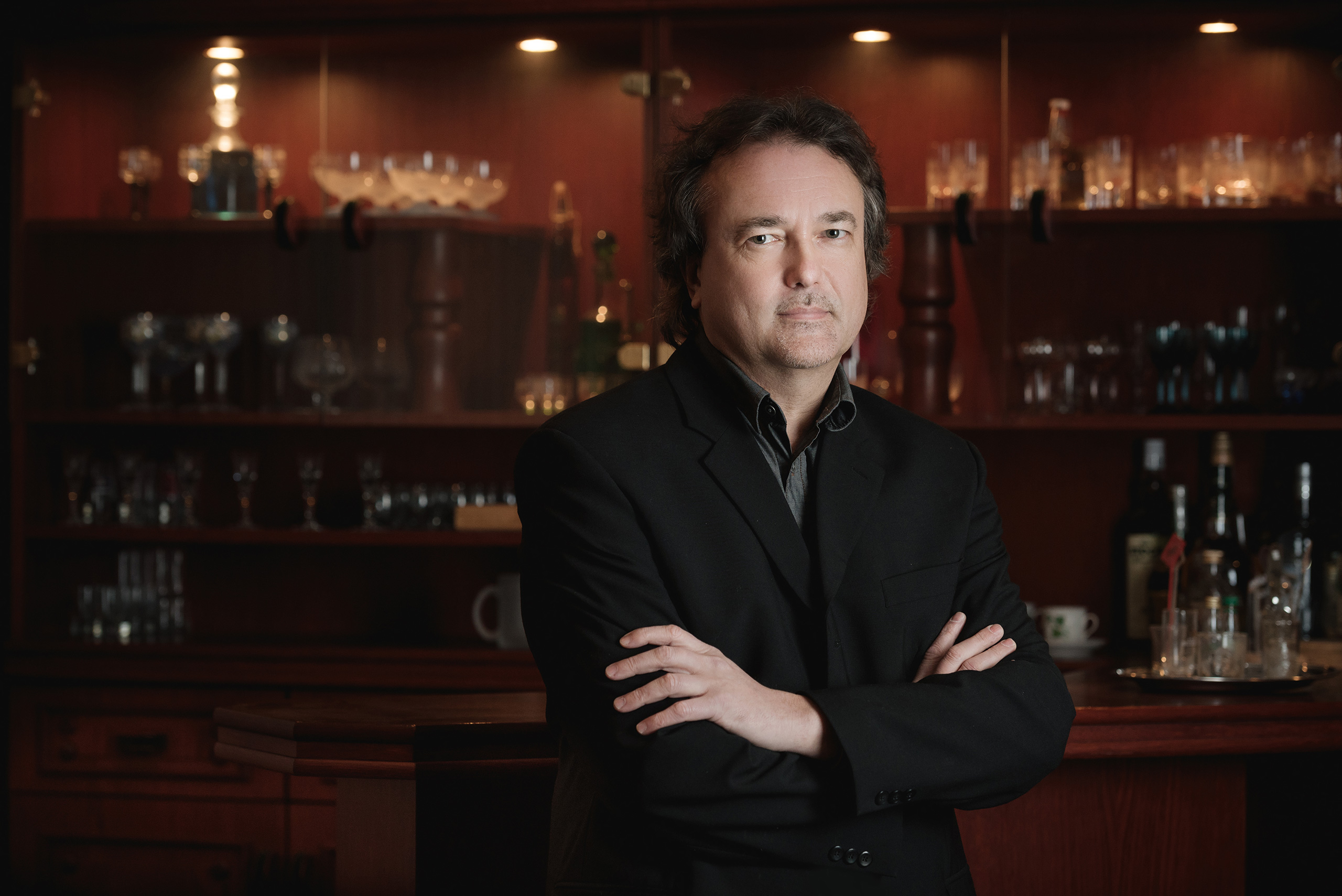A family, a tradition, a quality are three words that describe the essence of the Metelka Company and its products. The work of the CEO Milan Metelka is based on a legacy of his founders – his grandfather Antonín and father Bohumil. He relies on the skills of his closest family members and his products with unique recipes and quality processing have gained popularity among customers and experts. Milan Metelka started his business in one small room and he delivered his first products himself in an old sedan car called Lada 150. Nowadays, his liqueurs and first-class liquors are enjoyed all around the world.
The tradition of the Metelka brand dates back to the 1930s. Do you know if any other distilleries existed in Vyškov at that time? Did any of them survive?
As my dad used to tell me, there were many small distilleries in our country before World War II. In the Vyškov region, you could have found at least five of them. But we all know what the Communists done to private businesses in 1950s… After 1989, there were some attempts to revive a production of liqueurs but I don’t remember any names. These companies didn’t last long on the market. The vision I had was very important for me. I stuck to it and I didn’t concern about other companies and that paid off.
Your family lost the company after the Communist coup in 1948. How did that happen?
Even though, I searched archives and the answer is quite simple. The Communist decided the state would be the only supplier of alcohol products and that was the end for all companies. My grandfather’s licence was taken and it was done. The factory was run by a state-owned company but later it was completely shut down. My dad was labelled as an ‘unwanted bourgeois youth’ and he was sent to serve as a soldier at the Auxiliary Technical Unit. This experience negatively affected his whole life. He remembered the time they celebrated Labour Day dressed up as tennis players and this was considered a bourgeois provocation. After these experiences, he was allowed to work only as an owner of a tavern. He later had a better job as a manager of the general’s cafeteria of Vyškov army crew.
When you started business in 1992, you worked from your family house and drove an old sedan Lada 150. Now, your company has a small factory in the premises of Rudolf Jelínek. How many employees do you have?
We are still a small business with seven permanent employees. There is one person in production, three others in a racking room, two managers, and one person in the shop. If we need to increase the production during holidays (Christmas, Easter) we hire temporary workers.
So it’s the family business, isn’t it?
Yes, it is. My family is in charge of two-thirds of a stock company. I directly decide on the short-term and long-term strategies of the company. I’m a creator of all recipes. Jan Herynek is our designer and guardian of the brand. He consults work only with me or my son.
How did your children react when they started to work in the family business?
My younger son is a student and the older one is fully committed to the company. He’s in the position of the Chief Operating Officer. He managed to relocate the whole business from Moravské Prusy to Vizovice. It seems that he has developed a relationship with the company and I hope he will continue in a family tradition. He’s only 27 so I can’t tell if the company would be his lifelong interest.
The priorities of your company are tradition and quality. These are valid not only for products but for raw materials. Do you have regional suppliers or do you buy raw materials abroad?
When I create new recipes I always prefer to work with local high-quality suppliers. The main reasons are local features such as flavour, aroma, colour and so on. Because of that, our liqueurs have a unique local flavour that distinguishes us from the rest of the global production. Our liqueurs consist on average of 90% Czech ingredients and the rest are foreign ones.
What is the procedure of creating new recipes? How do liqueurs in certain series are made? How do you create new flavours? How much time does it take to develop a new recipe?
I studied the basic knowledge of an available literature after 1989. And I did many tests in method of trial and error. No school can teach you to make excellent liqueurs, cheeses, or soft drinks. It’s a complex creative complex with a big combination of ingredients dosing. I’ve been creating new recipes for over 20 years so I basically know what to do… And how long does it take to develop a new recipe? It differs. It may take two weeks but sometimes it can take two months. It depends a lot on your vision. Sometimes it can be easy to achieve, however, when you create something exceptional it can take many months to finish it. You must remember that I’m occasionally limited by a price of a final product. It might be difficult to maintain a reasonable price of the product when you try to find a perfect combination of ingredients. Another significant fact is that you have to coordinate a liqueur with design and marketing. Everything has to be connected and united.
Where do you create your new recipes?
I have a lab in Vizovice but often I create new beverages at home. I write to my son what I need and he delivers the ingredients and I can try new recipes. Every liqueur I make is slightly inspired by the time it was made. For example, Saint Hubert’s Liqueur was somewhat inspired by the popularity of Jägermeister. I just wanted to offer a product like that. On the other hand, I have never ever wanted to create the same beverage. And I never will. Moreover, Hubert had a family tradition but the original recipe was preserved so I had to develop a new one. In 1998, I wanted to make Baileys-like liqueurs so the Milky series was created. Almost at the same time, a public interest in absinthe increased and I responded with my own Absinthe series.
Do you present your newly developed liqueur to ordinary customers before you launch it onto the market?
Of course, I do. I always let many people to taste new products. It’s a very useful source of information but that doesn’t mean their opinion would change the final taste of a liqueur. It’s an inspiration for me only. Despite all the recommendations, I sometimes have to insist on my opinion because I’m the one who make the final decision. I’m the one who decides what is good for our company and which product can gain popularity.
Moravský Vaječný Tradiční belongs to your most popular beverages and flagships; moreover, it was awarded as the best eggnog on the market. Is it based on a traditional family recipe or is the final taste your work of art?
The recipe was invented by me on the basis of profound study of various family recipes and their production. I wanted people to return to their childhood memories when they taste our eggnog. I wanted them to say, “Yeah, it tastes like my grandmother’s eggnog from my childhood memories.” At the end of the day, I have such feeling about our product. The most important thing is that homemade eggnogs are made in cold process but our eggnog is heated and all ingredients are more united together. All of our milky liqueurs are heated over 50 °C. Everything is being done in warm process. According to our experience, flavours combine together perfectly and are more fragrant. To make pretty good eggnog is a hard work. A lot of ingredients and aromatic substances are needed.
You export your products to Nigeria. How can a distillery from Vyškov get to such exotic markets?
Nowadays, we export to more than twenty countries around the world (Bulgaria, Russia, Chile, China, Romania, Poland or Italy). We have a partnership with Rudolf Jelínek which is very successful in export. Moreover, our products expand their own range of products. Rudolf Jelínek produces fruit spirits and Metelka is specialized in liqueur production.



